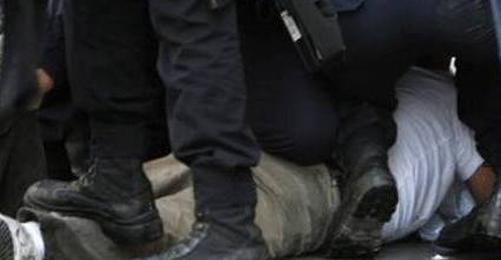The Verdict of ECHR and Turkey are Different
Judge Rait Maruste of the European Court of Human Rights (ECHR) said freedom of expression should be applied in its widest form to statements against governments and state institutions.
Associate Prof. Dr. Oktay Uygun said it was wrong that in Turkey cases about freedom of expression were only considered in terms of the content of the expression.
The Turkish Bars Union, Council of Europe, Marmara University, Istanbul Bar and 10th Year National Committee of Human Rights Education altogether organized the General Assembly.
During the assembly, Maruste underlined the importance of the article on freedom of expression both in terms of freedom of press and the citizens' right to access information.
Maruste said governments and state institutions should tolerate criticisms and accusations because they have the ability to use the right to respond in the widest possible way.
* When the government is the target, the extent of criticism is broader than when the target is a person. As the media and citizens have the right to follow the operations of the government, this right also gives the government the responsibility to tolerate the harshest criticisms.
* When freedom of expression is limited in order to protect the public or national security, these limitations should not be unconditional. They should not prevent freedom of expression but instead be persuasive.
"It is important to know who said it and where"
Associate Prof. Dr. Uygun from the Law Faculty of Istanbul University said there was a difference in the method of implementation of the freedom of expression article of the European Convention on Human Rights in the Turkish law.
* The ECHR handles freedom of expression taking into account four issues; whether the expression incites violence, armed rebellion and enmity within the community, the capacity of the person to influence the public, and the place of expression and how it was made.
Cases about article 10 in Turkey are only handled depending on the content of the expression. In most of the cases where the ECHR decision is different from the decision in Turkey, the ECHR takes into account the capacity of the person who has made the expression to influence the public.
* Under the European Convention on Human Rights, the area to which the widest freedom of expression is applied, is criticizing public authorities, politicians, high-ranking bureaucrats, and the government. The people being criticized in this case have a big opportunity to respond. In the Turkish law however, the situation is the exact opposite.
Prof. Dr. Andras Sajo from the European University, who evaluated the comments of Maruste and Uygun, said the government officials and judges emphasized the rights of people in terms of freedom of expression and prevented criticisms directed to the government in order to strengthen the status quo.
Fikret Ilkiz, a lawyer from the Istanbul Bar, said article 10, which regulates the freedom of expression, is the backbone of the European Convention on Human Rights.
He said the amendment of article 159 of the Turkish Penal Code were inadequate. Ilkiz added that the changes to the Radio and Television Higher Board (RTUK) and the Press Law did not provide for improvements of freedom of expression.
Article on freedom of expression
Turkey had ratified the European Convention on Human Rights in May 18, 1954. The convention was opened for signatures on November 4, 1950 and went into effect in September 1953.
Article 10
Freedom of Expression
1. Everyone has the right to freedom of expression. This right shall include freedom to hold opinions and to receive and impart information an ideas without interference by public authority and regardless of frontiers. This article shall not prevent States from requiring the licensing of broadcasting, television or cinema enterprises.
2. The exercise of these freedoms, since it carries with it duties and responsibilities, may be subject to such formalities, conditions, restrictions or penalties as are prescribed by law and are necessary in a democratic society, in the interests of national security, territorial integrity or public safety, for the prevention of disorder or crime, for the protection of health or morals, for the protection of the reputation or the rights of others, for preventing the disclosure of information received in confidence, or for maintaining the authority and impartiality of the judiciary. (OG/YS/EA/YE)
WOMEN MURDERS
The Common Reason for "Honourable" Men to Kill
WOMEN MURDERS
The Common Reason for "Honourable" Men to Kill
WOMEN'S RIGHTS
Harassment at Work Has Legal Consequences

GENDER EQUALITY
"Women Friendly" Cities

POLICE VIOLENCE
Policeman Shot in the Chase for a Child






